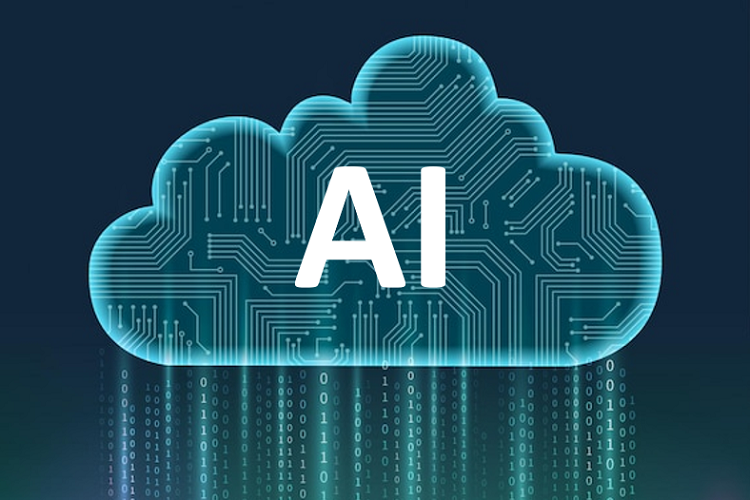Amidst the dynamic tech evolution, two key pillars have emerged as transformative forces: Artificial Intelligence (AI) and Cloud Computing. These technologies are not only revolutionizing the IT industry but are also reshaping businesses across various sectors. Rather than viewing AI and cloud computing as competing markets, enterprise leaders need to understand the symbiotic relationship between them, as it is key to driving innovation, efficiency, and strategic growth.

At the heart of the AI and cloud computing partnership lies automation. AI’s implementation streamlines simple processes, increasing efficiency and enabling teams to focus on the development process. The cloud acts as an ideal distribution mechanism for AI algorithms, making AI much more accessible and easier to deploy.
Major cloud providers have made available a wide range of algorithms that enable organizations to leverage AI capabilities seamlessly. In essence, a cloud consulting company acts as a guide in navigating this intricate relationship between AI and cloud technology, ensuring that businesses unlock the full potential of both these technologies for transformative and strategic advancement.
Benefits of Deploying AI in Cloud Computing
The combination of AI and cloud computing offers numerous advantages for organizations:
1. Productivity
AI-based algorithms require significant administrative effort, including building production and testing environments, software management, and provisioning hardware resources. By leveraging the cloud, these administrative tasks are streamlined, allowing teams to focus on more strategic and non-repetitive tasks.
2. Cost Savings
Traditionally, AI-based models ran on expensive machines with multiple GPUs in enterprise data centers. However, with the advances in cloud computing and virtualization, the cost of building, testing, and deploying these models has significantly decreased. This benefit level allows small-to-medium businesses to harness the power of AI with reduced costs.
3. Analytics
AI-based models make it easy to mine and analyze vast datasets in real-time, enabling organizations to derive actionable insights. By leveraging AI capabilities in the cloud, organizations can develop native analytics and dashboards for various applications, enhancing decision-making processes.
4. Data Management
AI powers up the cloud workloads in ERP, marketing, customer service, and other supply chain management processes by generating data in real-time. The cloud facilitates the storage, transfer, and analysis of data, enabling organizations to leverage AI for improved data management.
5. Automation
Workloads are streamlined, and repetitive procedures are automated using AI cloud computing, which is integrated into the infrastructure. AI technologies can be used to monitor, control, and self-heal individual public and private cloud components in a hybrid cloud system, increasing dependability and efficiency.
6. Better SaaS Tools
AI algorithms are integrated into mainstream SaaS tools, enhancing their functionality and value for end-users. For example, Salesforce’s “Einstein” AI algorithm helps customers make sense of vast amounts of data, find patterns, and derive actionable insights to improve sales strategies. This integration of AI in SaaS tools is just one example of the numerous AI-enabled applications in the cloud.
Applications of AI in Cloud Computing
The integration of AI and cloud computing has unlocked a world of possibilities, revolutionizing various fields. Some of the common AI-based applications in the cloud include:
1. Chatbots
Chatbots are ubiquitous AI-based software that uses NLP to carry out quick conversations with users. The cloud platforms store and analyze the data captured by chatbots, connecting them to appropriate applications for further processing. Customer data is fed back into the chatbot application residing in the cloud, enhancing customer service experiences.
2. Internet of Things (IoT)
The Internet of Things’ cloud architectures and services can store and process the data produced by AI platforms on IoT devices. Advanced analytics and real-time decision-making are made possible by this integration, which also expands the possibilities of IoT devices.
3. Business Intelligence (BI)
AI cloud computing offers significant benefits in the realm of business intelligence. By gathering data on the market, target audience, and competitors, AI-driven BI tools provide valuable insights to organizations. The cloud facilitates the storage, transfer, and data analysis, thus enabling organizations to make informed decisions.
4. Cognitive Cloud Computing
Cognitive computing leverages AI models to replicate and simulate human thought processes in complex situations. Cloud providers offer cognitive insights-as-a-service, enabling enterprises to apply this technology in finance, retail, healthcare, and other industries.
5. AI as a Service (AIaaS)
With the availability of AI outsourcing services from public cloud providers, businesses can now test and implement commercially available AI applications without making large infrastructure expenditures. Organizations may affordably utilize AI capabilities with this method.
Concluding Thoughts
AI and cloud computing are driving innovation and efficiency across industries. The symbiotic relationship between these technologies offers significant advantages, including cost savings, productivity gains, automation, enhanced analytics, and improved data management. However, challenges related to connectivity and data privacy must be tackled to ensure the successful deployment of AI in cloud environments.
As the cloud industry matures, the integration of AI is expected to accelerate innovation further. Organizations that embrace AI cloud computing early on will gain a competitive advantage, leveraging AI’s transformative capabilities to drive growth and success.
The future holds immense potential for the synergy between AI and cloud computing, reshaping businesses and revolutionizing the way we work and interact with technology. By harnessing the power of AI in the cloud, organizations can unlock new possibilities and drive the next wave of technological advancements.



